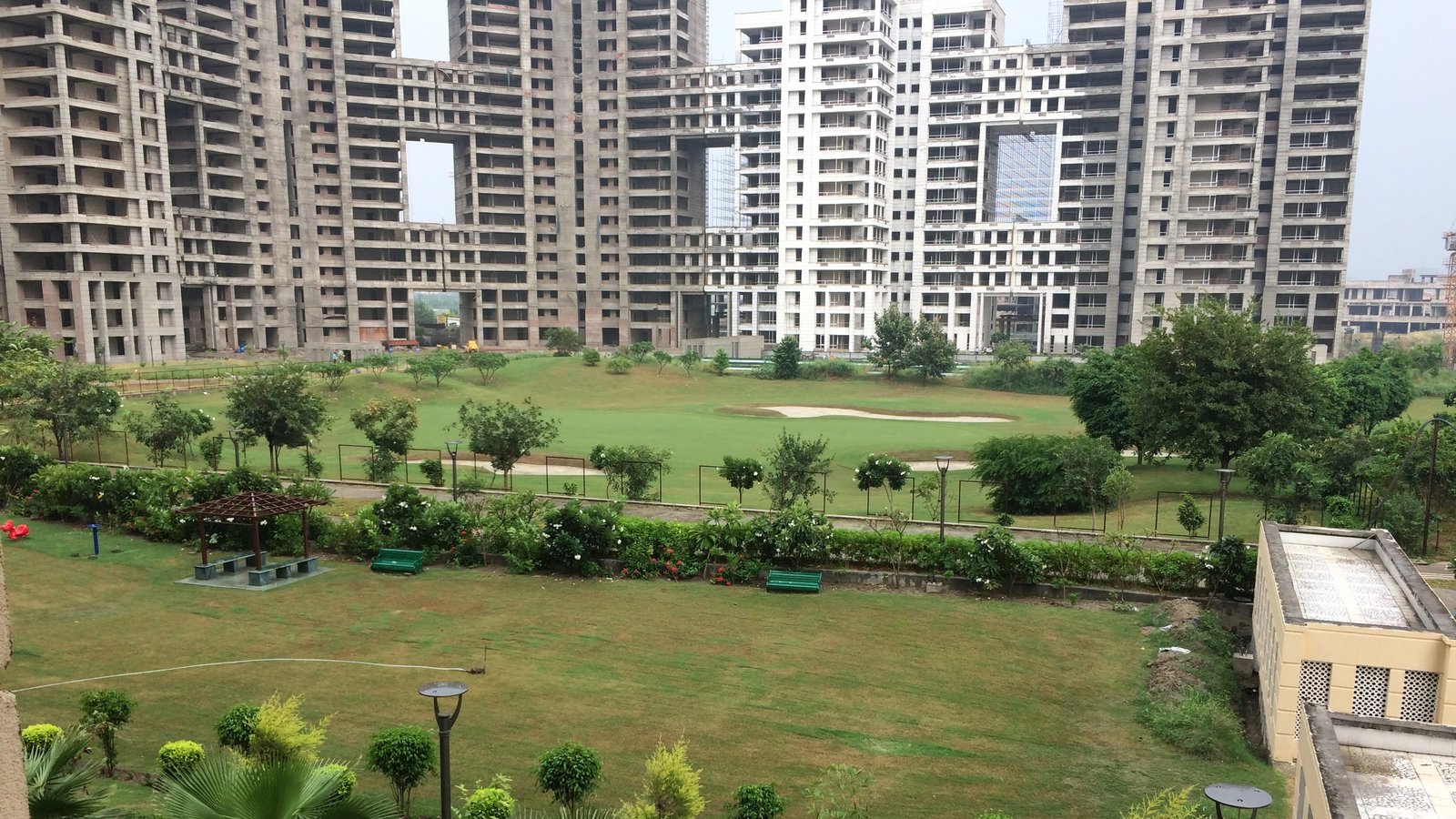Bottom Line: Despite of uncertainty and legal limitations after the NCLT’s insolvency verdict against Jaypee Infratech, all is not lost for the invested homebuyers. Ravi Sinha explains the options in hand for the homebuyers.
 Abhinav Kanchan works with one of the most reputed developers of Bangalore. He naturally understands the importance of home buying with a credible developer. He therefore booked his flat in Noida around seven years back with Jaypee Group’s integrated township Wish Town. After all, Jaypee Group had been among the market leaders at that point of time. On the insistence of the builder he even made an upfront 90% amount and is paying a hefty EMI (Equated Monthly Installment) to the bank every month since then.
Abhinav Kanchan works with one of the most reputed developers of Bangalore. He naturally understands the importance of home buying with a credible developer. He therefore booked his flat in Noida around seven years back with Jaypee Group’s integrated township Wish Town. After all, Jaypee Group had been among the market leaders at that point of time. On the insistence of the builder he even made an upfront 90% amount and is paying a hefty EMI (Equated Monthly Installment) to the bank every month since then.
Today, the news of insolvency and bankruptcy of Jaypee Group has completely shattered his post retirement plans of settling in Delhi-NCR with the family. Abhinav is not alone to curse his fate and question where has he gone wrong in his judgment.
Doctor D N Rao has a similar story where he bought an apartment with an upfront payment of 90% at Garden Isles apartment with Jaypee Wish Town. This retired doctor with all his post retirement corpus stuck with uncertainty is today making frenetic calls to friends and relatives to find out whether his hard earned money has been washed out by the builders’ fiscal mismanagement.
It is not just a story of one or two, but more than 30,000 homebuyers are cursing their fate and asking the same question: how can they recover their hard earned money?
Possible remedy for homebuyers
Never stop paying the EMIs
Join the NCLT proceedings to register your claim
No litigation is possible during the NCLT proceedings of 180 days
One can also explore remedy under the RERA
If not satisfied with NCLT judgment, appeal to higher tribunal of NCLAT
There is no High Court jurisdiction into it
If not satisfied with NCLAT then case with Supreme Court is the final recourse
Genesis of crisis
The Allahabad bench of NCLT on 9th August admitted a petition by IDBI Bank for insolvency proceedings against Jaypee Infratech and approved the appointment of an interim resolution professional. The professional will get 180 days (plus 90 days) to turn around the company’s finances and see if a resolution of the company’s debt is possible. In case this is not possible, the company’s asset will be liquidated.
The company, with interests in road and real estate sectors, had a consolidated debt of INR 7,922 Crore as on March 31st 2017.
Desperate instinct
Many of the homebuyers in their desperate instinct are thinking of immediately stopping EMIs (Equated Monthly Installments) to banks. However, many of them are conscious of the fact that stopping EMI is not a solution. If buyers stop servicing their home loans (as they are not sure if they will get a house), it may impact their credit rating.
Many of the homebuyers, mostly in their first few years of job, are stuck as they can neither get a new housing loan nor any other study loan. If they stop paying the EMI, banks will also get affected and their NPAs will increase manifold.
However, any future interpretation by courts will definitely take into account the defaults, if any, on part of the homebuyers. It is hence advised that during this interim period buyers remain legally compliant in order to be declared defaulter.
Legal limitations
As per the prescribed norms defined under the Insolvency and Bankruptcy Code, 2016, the amount will first be distributed among secured creditors such as banks and the remaining amount will be passed on to the unsecured creditors who are the homebuyers.
The homebuyers demand that NCLT has to consider them as stakeholders in the insolvency proceedings since they have financed Jaypee Infratech for the construction of these projects. However, the legal position is that the homebuyers are not the financial creditor at par with banks.
Catch 22
The case has been admitted under Insolvency and Bankruptcy Code and an Interim Resolution professional has been appointed. He will first take stock of company’s finances, assets and liabilities and try to work out a restructuring package in consultation with all stakeholders.
Homebuyers have been given time till 24 august to raise claims related to their investment in the Jaypee projects. But the whole process of refund is complex as under the Code, an insolvency resolution professional appointed by the NCLT will have to address the financial issues during this stipulated period and if he fails to turn the company around in order to make it financially viable again, the NCLT will have to liquidate the assets of the company to recover money owed.
All the aggrieved parties will be heard by the insolvency professional and it shall depend on the NCLT to decide whether aggrieved homebuyers will be treated as financial creditors or not.
Homebuyers’ options
Suvidutt Sundaram, Advocate-on-Record at Supreme Court of India suggests that any order can be challenged by the homebuyers. He suggests that the homebuyers must explore other options before approaching the Supreme Court. The homebuyers should immediately join the NCLT proceedings and register their claim. But they must never stop paying the EMIs.
“No litigation can be initiated right now against the debtor during this 180 days of period, that is what the Insolvency and Bankruptcy Code clarifies. If they are not satisfied with the final order of the NCLT, they have the option to appeal it before the National Company Law Appellate Tribunal (NCLAT). There is no role of High Court into it and the buyer, if still not satisfied, can approach the Supreme Court,” says Suvidutt.
Advocate Aditya Pratap of Bombay High Court makes it an important observation when he says that unlike Maharashtra Ownership Act the UP Apartment Owners’ Act of 2010 is a very shoddy piece of legislation which leaves many loopholes for builders. According to him, as per the Companies Act the homebuyers are also creditors since they can also file a winding up petition, if the company is unable to pay the debt.
“Homebuyers are technically creditors to the company. The definition of creditors under the Companies Act is a very open-ended definition. But with the Insolvency and Bankruptcy Act there are many kind of creditors, including the secured creditors, unsecured creditors and the Decree Holders. Now this Decree Holder term is very important as it implies that any homebuyer who could get a decree from any court of law. So, if you get a decree from a court or RERA then the decree can be executed through the Interim Professional appointed by the Insolvency and Bankruptcy Act,” says Pratap.
By: Ravi Sinha





